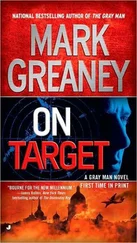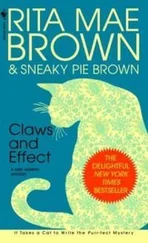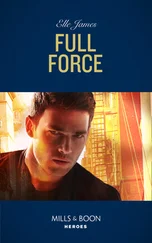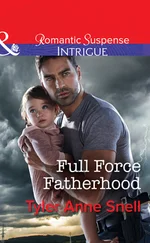Ri didn’t believe this was true for an instant, though he had no doubt believing the elder Choi’s doctors would have made the claim he had been poisoned to deflect blame on themselves. Ri was the operations chief of RGB when Choi’s father died, and he and his people were ordered to find evidence of an assassination. Ri found no such evidence, because no such evidence existed.
Choi went back to Rangoon. “My grandfather’s bravery in ordering this attack on the leader of the South was only matched by his forward thinking. Just consider it for a moment, Ri.”
Ri couldn’t help but think the three assassins were the real brave ones, braver than the man who sent them down with orders to kill themselves after the attack. But of course he made no mention of this.
Choi finished his drink, and a beautiful young girl—Ri did not think she could have been more than seventeen—walked across the empty banquet room with a crystal flask and refilled Choi’s snifter. Choi did not regard her—instead, he kept talking.
“If Rangoon had succeeded it would have changed the fate of our nation. Indeed, the fate of the world.”
Ri bowed. “Yes.”
“If you were able to eliminate Jack Ryan, I feel certain this would have a similar outcome for our nation. Do you agree?”
Ri’s heart sank. He was being given another impossible task. But he said, “Yes. I agree wholeheartedly.”
Choi said, “I know the difficult thing is to make it look like someone else is involved.” Choi leaned forward halfway across the table. Ri caught the unmistakable smell of brandy, not from the snifter in his hand, but from his skin. “But that is your problem.”
An uncomfortable silence told General Ri that it was his turn to talk.
“Yes. Well . . . certainly there are many who would benefit from his death.”
“Of course. How would you do it?”
Ri blinked. He needed to say something to bolster Choi’s confidence in him. He tried to show no doubt, no hesitation. He spoke off the top of his head, fighting for the words just as they came out of his mouth. “I would find out his foreign travel schedule. I would use Middle Eastern bomb makers. I have access to them through our good relations with Syria and Iran. I would organize the affair through proxies.” He hastened to add, “But I would be involved with every aspect of it, because there could be no failure. Jack Ryan is well protected now, but if there is a credible attempt on his life, the Americans can do so much more to keep away from assassins. There will be no second opportunity.”
Choi nodded thoughtfully.
Ri worried he was about to order him to proceed, so he spoke quickly, couching his words of warning in layer over layer of deference, lest he offend the Dae Wonsu. “I am certain you are aware of this, because of your astute knowledge of world history, and I only bring this up to remind myself of the stakes of any such operation, but there is the need to remember how America reacts to insult, threat, and attack. Pearl Harbor is but one example. As the Japanese marshal admiral Isoroku Yamamoto said, they awoke a sleeping giant. America will look long and hard for the perpetrators of the act, and if they suspect for an instant we are the perpetrators, then they will seek revenge on our soil.”
Ri had hoped that would sink in for a moment, but Choi waved the threat away with his brandy snifter, sloshing some of the drink out of the bowl-shaped glass and onto the table.
“Your Middle Eastern bomber should not survive to talk.” Choi smiled as if he had solved all the problems and issues with one brilliant sentence.
Ri worked hard to match his leader’s smile with one of his own. “Yes, Dae Wonsu. That is an excellent idea.”
20
Londoner Edward Riley didn’t much care for New York, as it was not his home. But since his home didn’t much care for him, he’d relocated here to the States five years earlier, and he was bloody well determined to make the best of it.
Part and parcel of making the best of it included the vehicle in which Riley now drove as he motored down the West Side Highway through mid-morning traffic. It was a coal-black BMW i8 electric sports car. It shined as if he’d coated it with cooking spray before leaving his garage, and its lean, aerodynamic form turned heads and earned whistles and compliments even here in the sneering Upper West Side.
Edward Riley loved the attention, which was an odd thing, really, because Edward Riley was a spy.
—
Claiming fame is frowned upon for intelligence officers, but Edward Riley’s claim to fame was undeniably impressive. He had been the youngest chief of station in the last thirty years at MI6, the foreign intelligence arm of the government of the United Kingdom. Now, at age thirty-six, he had the experience and the CV envied by men twice his age, and Riley played this up more like his own publicist than as a spook concerned with his own personal security.
As a young lad, short and sandy-haired Eddie had a love of language and culture. His parents traveled Europe as manufacturer representatives in the fitness-equipment industry, and he’d been to every country on the continent by age ten. Moreover, his grandparents on his mother’s side were ardent travelers who “borrowed” their grandson for summer hops to Africa and Asia and South America.
Eddie went into Eton with plans of following into his father’s business so he could continue to see the world, and he studied French and Arabic and Russian as a means to that end.
He hadn’t been a perfect candidate for intelligence work because although most spies have at least some level of loyalty to their own flag, Riley did not. It wasn’t that he was unpatriotic, really, rather he just didn’t give a toss about his own country or countrymen. But one of his professors at Eton was an unofficial recruiter for the Crown and he forwarded Eddie’s name on a hunch, and soon Eddie was met after class by a middle-aged woman and asked if he’d be interested in taking the civil service exams.
“Not particularly,” was the honest answer.
But the woman was persuasive, and she hyped the travel and the study of culture and within seconds a lightbulb went off and Eddie Riley realized this was a recruitment attempt for the British secret services.
And that sounded interesting—there wasn’t a James Bond film young Riley hadn’t seen five times—so his “not really” turned to “why not?”
One does not apply to MI6. Instead, one applies for a position at the coordination staff for the Foreign and Commonwealth Office—this is personnel code for foreign intelligence work. Riley did this and then he breezed through his training, and soon he was off into the world, beginning every young officer’s saga of doing time at dusty outposts, learning the ropes the hard way.
Sana’a, Yemen. Windhoek, Namibia. Then a promotion to Montevideo, Uruguay.
After he had spent a year in South America the war in the Middle East had pulled enough more experienced intelligence officers into that region to leave some plum postings vacant for young officers who were both competent and easily mobile. He worked in Finland for a year, and then he did a longer stint in the British Virgin Islands. Riley made a name for himself and by age twenty-seven he was back in Europe, as assistant chief of station in Bulgaria, a rising star.
He’d been in that position for less than six months when his chief of station was recalled home due to a family illness. MI6 had plans to replace the senior spy with someone other than his young second-in-command, but a month as acting chief of station turned to three, and then by six someone decided he’d earned the position he’d fallen into, and the paperwork was completed to make it official.
Читать дальше












